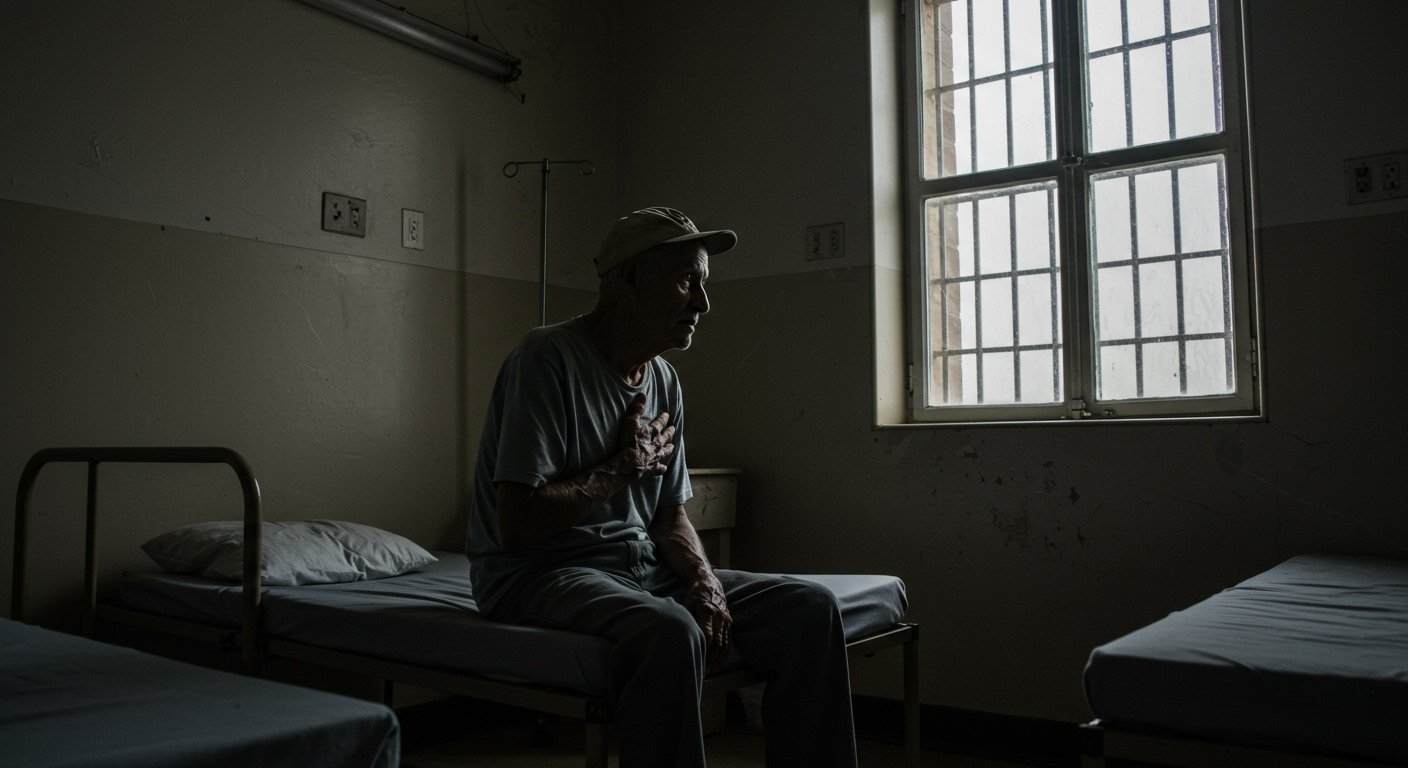MIAMI, FL – A 75-year-old Cuban national, Isidro Perez, died on Thursday, June 26, 2025, while in the custody of U.S. Immigration and Customs Enforcement (ICE) in Florida. His death occurred at HCA Kendall Hospital after he was transported there from the Krome Service Processing Center (KSPC) located in southwest Miami-Dade County.
Mr. Perez’s passing marks the fifth death of a detainee in ICE custody within the state of Florida this calendar year, according to information released regarding the incident. The circumstances surrounding his death are currently under investigation.
Details of the Incident and Medical History
Isidro Perez reportedly notified health services staff at the Krome Service Processing Center of experiencing chest pains around 7 p.m. on Thursday, June 26, 2025. This complaint prompted his transport to HCA Kendall Hospital, where he subsequently died.
Notably, Mr. Perez had a significant recent medical history prior to his death. He had been admitted to Larkin Community Hospital on June 17, 2025, suffering from “unstable angina.” After receiving care, he was discharged from Larkin Community Hospital just the day before his death, on Wednesday, June 25, 2025.
His swift return to a medical facility and subsequent death highlights the precarious health situations that can arise among individuals in detention, particularly older detainees.
Background and Immigration Status
Mr. Perez’s presence in ICE custody stemmed from his arrest on June 5, 2025. The arrest took place in Key Largo during a law enforcement action. Following his apprehension, he was charged with inadmissibility under the Immigration and Nationality Act.
Isidro Perez had a long history in the United States, having been paroled into the country in Houston, Texas, in 1966. His record also included federal convictions for possession of a controlled substance from both 1981 and 1984.
While the specific nature of the substances involved in these convictions was not detailed in the context of his death announcement, the convictions for possession of controlled substances, occurring over four decades ago, were a factor in his current inadmissibility charge and subsequent detention.
The Krome Service Processing Center
Krome Service Processing Center, situated in southwest Miami-Dade County, is one of several facilities in Florida utilized by ICE to house individuals in immigration detention. These centers hold individuals awaiting deportation proceedings, seeking asylum, or detained for other immigration enforcement reasons. The conditions and healthcare provided in such facilities are often subjects of scrutiny from immigration advocates and human rights organizations.
Investigation Underway
As is standard procedure following a death in ICE custody, the incident involving Isidro Perez is under investigation. The review is typically conducted by ICE’s Office of Professional Responsibility. In addition, the local medical examiner’s office is responsible for determining the official cause and manner of death.
The findings of these investigations are crucial for transparency and accountability regarding the welfare of detainees held within the U.S. immigration detention system.
Fifth Death in Florida This Year
Isidro Perez’s death represents the fifth fatality among detainees in ICE custody in Florida during 2025. This statistic raises concerns about the health and safety of individuals held in detention facilities across the state.
His death follows closely on the heels of another recent fatality. Days earlier, a 49-year-old Canadian man also died while in custody at the federal detention center in downtown Miami, a facility that also houses ICE detainees.
The cumulative number of deaths this year underscores the ongoing challenges and scrutiny faced by ICE and its detention facilities concerning detainee health and mortality rates. Each death prompts calls for closer examination of medical protocols, access to care, and the overall conditions within these centers.
Advocacy groups often cite such deaths as evidence of systemic issues within the immigration detention system, pushing for reforms that prioritize detainee well-being and explore alternatives to detention, particularly for vulnerable populations such as the elderly or those with pre-existing health conditions.
Broader Context of Detention Health
The case of Isidro Perez highlights the complex health needs that can exist within the detainee population. Managing chronic conditions, providing timely access to specialized medical care, and ensuring appropriate monitoring are critical components of healthcare provision in a detention setting. The brief period between Mr. Perez’s discharge from hospital and his death prompts questions about the transition of care and the ability of the detention facility’s health services to manage his condition adequately post-hospitalization.
Official reports on deaths in ICE custody, once completed, typically provide detailed information on the circumstances, medical care provided, and contributing factors. These reports are vital for assessing the adequacy of care and identifying areas for improvement within the detention healthcare system.
Conclusion
The death of Isidro Perez, a 75-year-old Cuban national, in ICE custody in Florida on June 26, 2025, marks a somber milestone as the fifth such death in the state this year. With a history stretching back to being paroled into the U.S. in 1966 and facing inadmissibility charges based in part on decades-old convictions, his final days were spent between a civilian hospital and an immigration detention center.
The ongoing investigations into his death by ICE’s Office of Professional Responsibility and the local medical examiner will be critical in shedding light on the specific sequence of events and medical factors involved. As the state of Florida continues to see deaths within its ICE detention facilities, the focus remains on the health, safety, and accountability of the system responsible for those held in its care.





